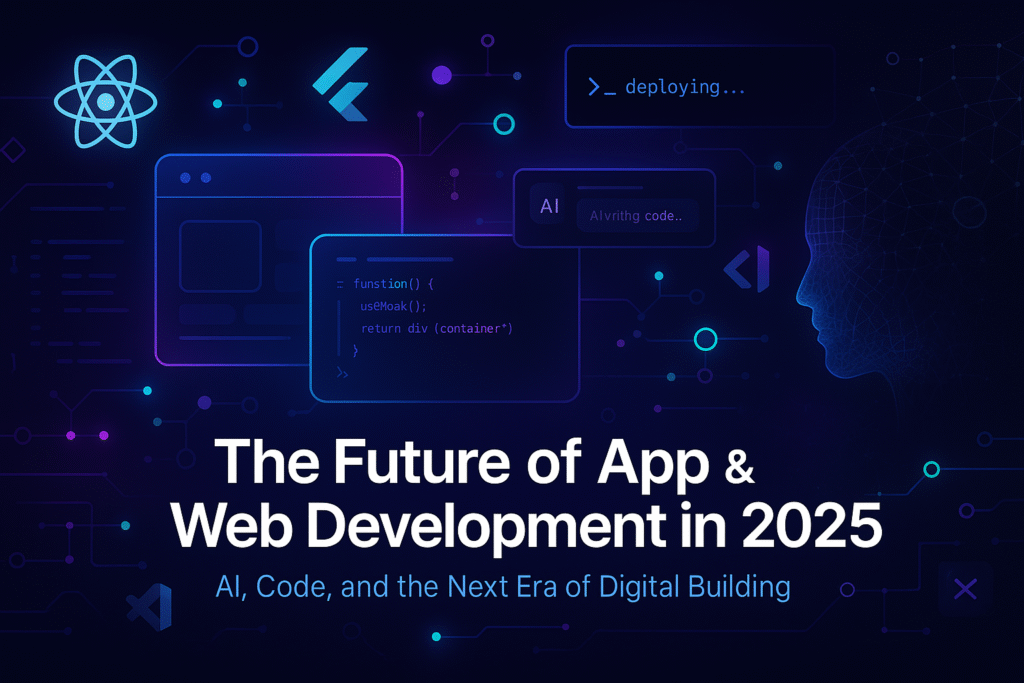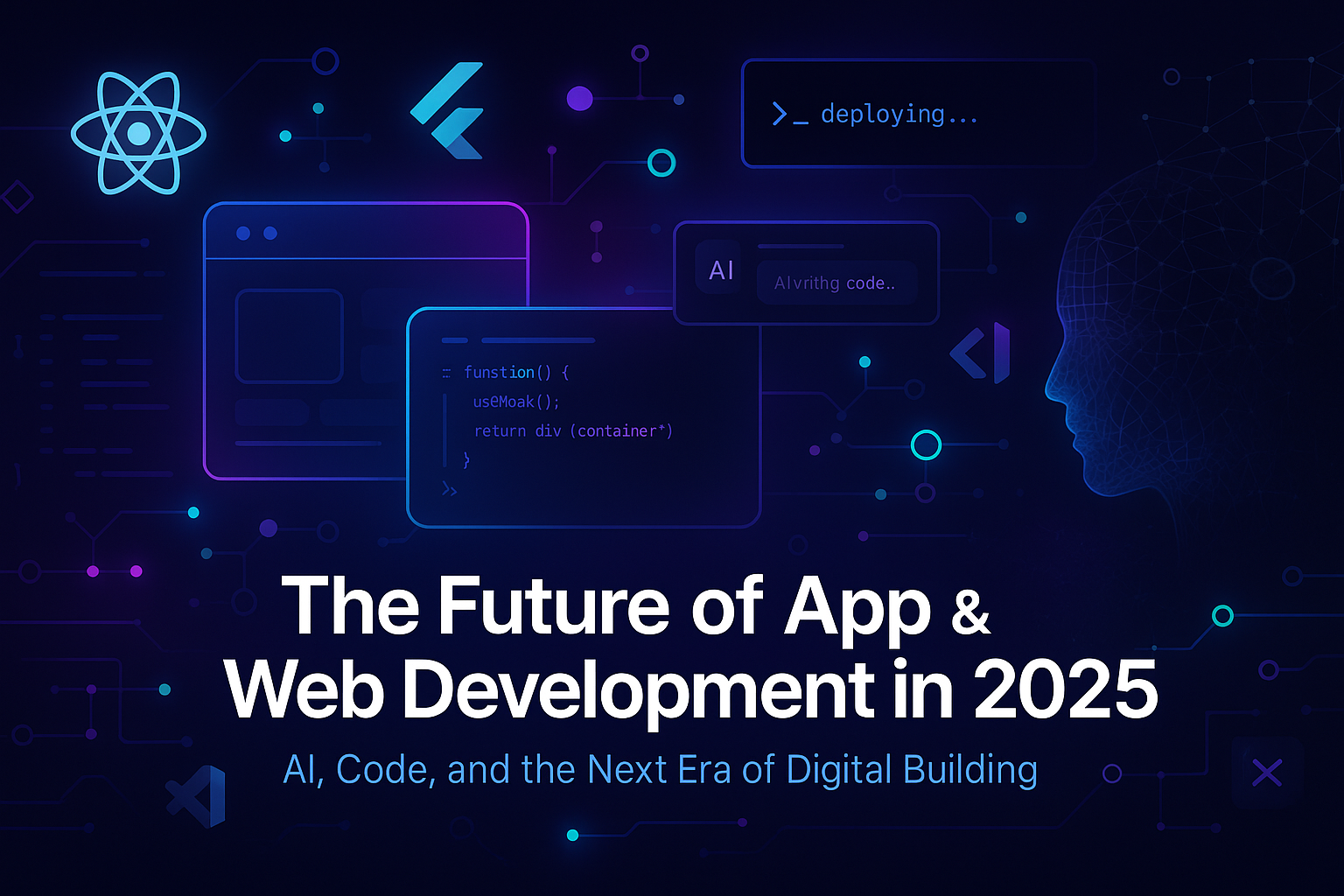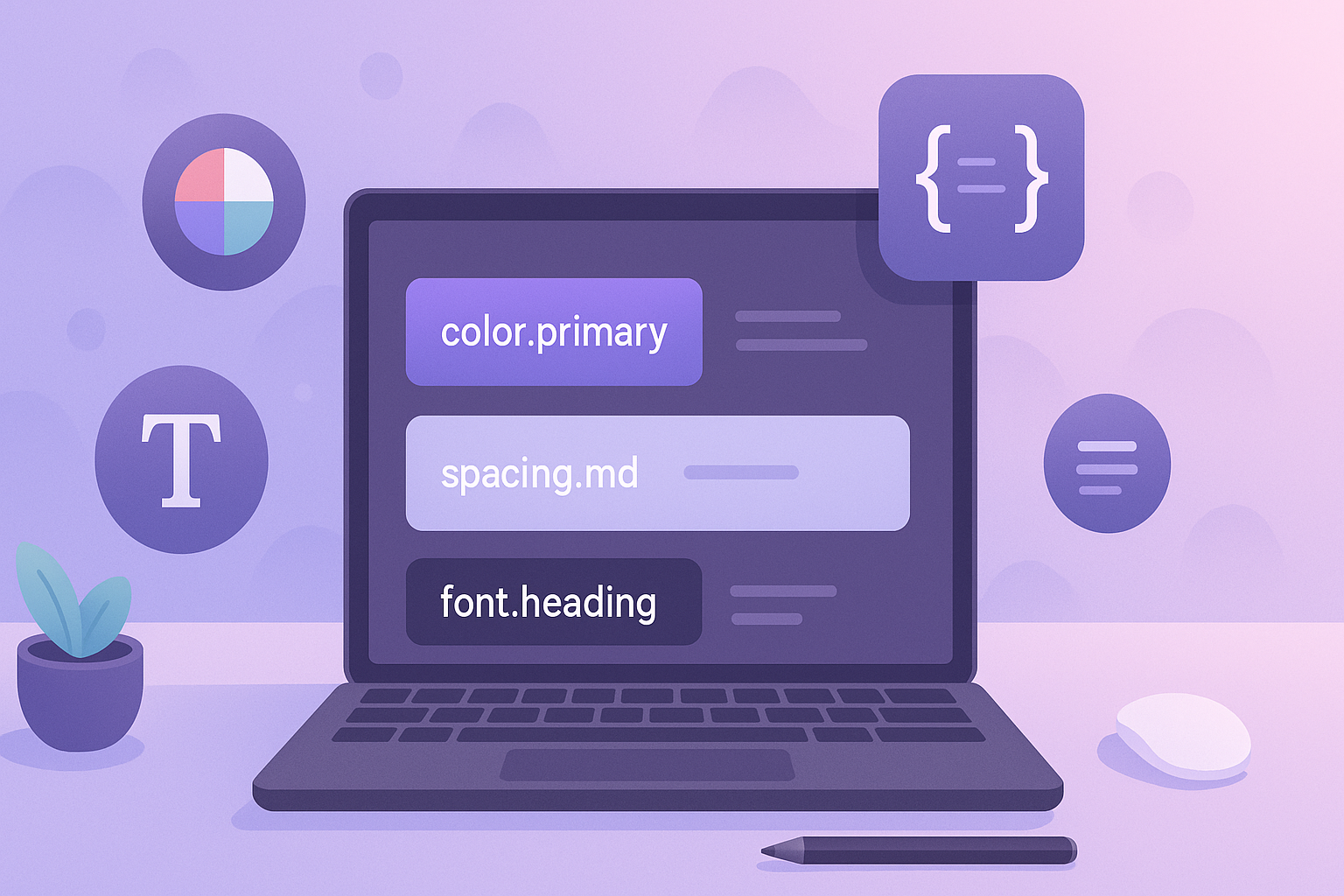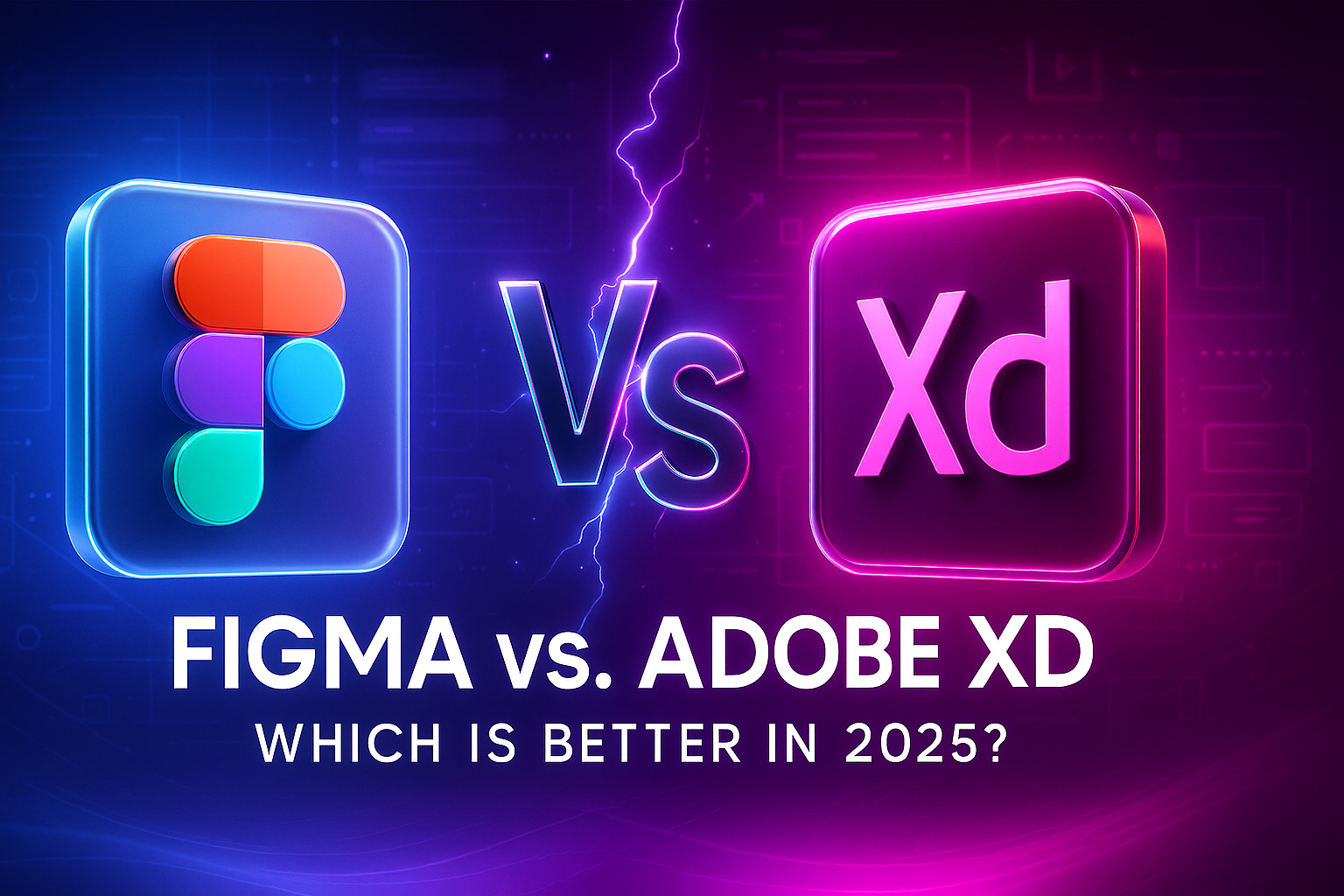A Deep Guide for Aspiring Developers and Coders
The world of software development is evolving faster than ever. From traditional coding to the rise of artificial intelligence (AI)-powered development tools, the skills, tools, and mindsets that once shaped the tech industry are shifting. If you’re a student, beginner, or even a junior developer entering this space today, it’s important to understand where the industry is going—so you can align your learning with what the future demands.
This blog is a comprehensive guide for those just starting out in web and app development. We’ll explore how coding has evolved, where it’s headed, how AI is changing the game, and what exact steps you can take to future-proof your skills. Whether you’re self-taught or coming from a university background, this article will give you both the vision and roadmap you need.
Understanding the Evolution of Development — From Code to Intelligence
The journey of web and app development started with simple lines of HTML and has now reached a point where AI can generate entire applications with just a few sentences of instructions. In the early days, websites were mostly static, offering limited functionality and being manually coded from scratch. Developers had to write every layout in raw HTML and style each page with basic CSS. App development, too, was limited—building a mobile app meant developing two completely separate versions for Android and iOS using Java and Objective-C.
Fast forward to today, and we see a different world. Modern web development now uses dynamic, component-based frameworks like React and Next.js that allow developers to reuse, manage, and deploy code efficiently. Mobile app development is no longer a platform-specific task—Flutter and React Native let you build cross-platform apps with a single codebase, saving enormous amounts of time. The development cycle has become faster, smarter, and more collaborative, with automation and AI playing key roles. Understanding this evolution is essential because it tells us one thing clearly: coding is no longer just about writing code—it’s about solving problems using the best tools available.
The Rise of AI-Powered Development
Artificial intelligence is arguably the most transformative force in software development right now. It’s reshaping everything from how we write code to how we deploy, test, and maintain it. Tools like GitHub Copilot, ChatGPT, and Codeium are now capable of generating complete functions, suggesting code in real time, and even debugging common issues before the developer spots them. For beginners, this might sound intimidating—but in reality, AI is a powerful partner that enhances human productivity, not a replacement for it.
For instance, consider a beginner struggling to build a login system in Node.js. With AI tools, they can describe what they want in plain English, and the tool will provide a ready-to-use code snippet. But here’s the catch—if the developer doesn’t understand what the code does, they can’t scale it or fix bugs later. That’s why learning the fundamentals is still critical. In 2025 and beyond, the smartest developers will be those who combine their foundational skills with the ability to prompt and collaborate effectively with AI systems. They’ll understand not only what the code does, but how to improve, secure, and scale it.
What Skills Developers Must Learn Now
If you’re just starting out, you might feel overwhelmed by the huge number of tools, languages, and frameworks available. But the good news is, you don’t need to learn everything at once. The key is to build a strong foundation and then layer modern tools on top of that foundation as your confidence grows. Start with HTML, CSS, and JavaScript—these three technologies form the backbone of the modern web. Once you’re comfortable with those, learn React for frontend development and Node.js or Python with Django for backend logic.
After grasping the basics, you’ll want to understand how to work with databases like MongoDB or Firebase, and how to deploy your applications using platforms like Vercel, Netlify, or Heroku. Later on, explore Git and GitHub for version control and collaborative coding. Don’t forget to learn about API usage and integration, which is crucial for building modern applications that communicate with other systems. Finally, begin integrating AI into your workflow—try tools like GitHub Copilot for autocompletion or ChatGPT for quick debugging tips. These tools won’t replace your skills, but they will multiply your productivity.
The Future of App Development — Cross-Platform and Cloud-Native
Mobile app development has changed dramatically in the last few years, and it’s continuing to evolve in 2025. In the past, developers had to build two separate apps for Android and iOS, using completely different languages and development environments. That approach was expensive, time-consuming, and hard to maintain. Today, cross-platform frameworks like Flutter and React Native allow developers to write code once and deploy it on both platforms, and even on the web and desktop in some cases.
But beyond cross-platform capability, the future of apps lies in cloud-native and real-time applications. Apps are now expected to be always connected, respond instantly to user actions, and scale globally with no downtime. Tools like Firebase, Supabase, and Appwrite provide real-time databases, authentication, and cloud functions out-of-the-box. Combined with modern CI/CD (Continuous Integration and Deployment) tools, developers can push updates instantly and automate testing, monitoring, and rollback processes. As a developer, it’s no longer just about building apps—it’s about building smart, scalable, and reliable systems that respond to users in real time.
A Step-by-Step Roadmap to Learn Development in 2025
Let’s now talk about a practical roadmap that beginners can follow in 2025 to become job-ready or launch their own projects. The first 1–2 months should be fully dedicated to learning HTML, CSS, and JavaScript. You should build small UI projects such as a personal portfolio, a weather widget, or a responsive blog layout. This helps you understand layout, design systems, responsiveness, and basic interactions. By the end of this phase, you should be confident with how webpages are built and styled.
In months 3–5, move into frontend frameworks like React and backend development using Node.js or Django. Learn how to connect your frontend to your backend, build APIs, store data in a database like MongoDB or Supabase, and handle user login/logout sessions. At this stage, work on full-stack projects such as a notes app, a simple CMS, or a task manager. By months 6–8, focus on project development and deployment. Learn how to use GitHub for collaboration, Vercel/Netlify for hosting, and Docker if you’re interested in DevOps. Lastly, from months 9–12, start integrating AI tools and APIs into your projects. Try building a chatbot using the OpenAI API, or an image generator using Replicate. With this approach, you’ll move from beginner to full-stack, AI-aware developer in just one year.
AI + Developer = The New Superpower
The developers of the future won’t just write code—they’ll design logic, train AI, and build intelligent systems. Already, we’re seeing developers use AI models to generate UI code from design mockups, build backend logic from prompts, and even write documentation automatically. In 2025 and beyond, AI will become an integral part of the development workflow. However, the real strength will come from developers who understand both coding and the logic behind these AI systems.
For instance, knowing how to call an AI API is useful. But knowing how to fine-tune that API for your specific use case is a real skill. Developers who learn how to train models, adjust parameters, and connect them to real-world applications will lead the next generation of app and web innovation. More importantly, they’ll be in high demand across industries—not just tech, but also education, finance, healthcare, and logistics. The key takeaway? AI is not a threat to your coding career—it’s the biggest opportunity you’ll ever have.
Final Words: Becoming a Developer Who Can Adapt and Lead
If you’re beginning your journey in web or app development today, you’re not late. In fact, you’re arriving at the perfect time—a time where technology is shifting and opportunities are wide open for creative, passionate developers. But to thrive in this new world, you must focus on depth of understanding, building real projects, and staying updated with industry trends. Don’t get stuck in tutorial loops—practice is everything. Start small, build often, and publish your work on GitHub and portfolio websites.
Learning to code isn’t about memorizing syntax anymore. It’s about problem-solving, collaboration, and knowing how to use tools (including AI) smartly. If you can think critically, build consistently, and keep improving your craft, you’ll be ready not just for today’s development world—but for what’s coming next.





